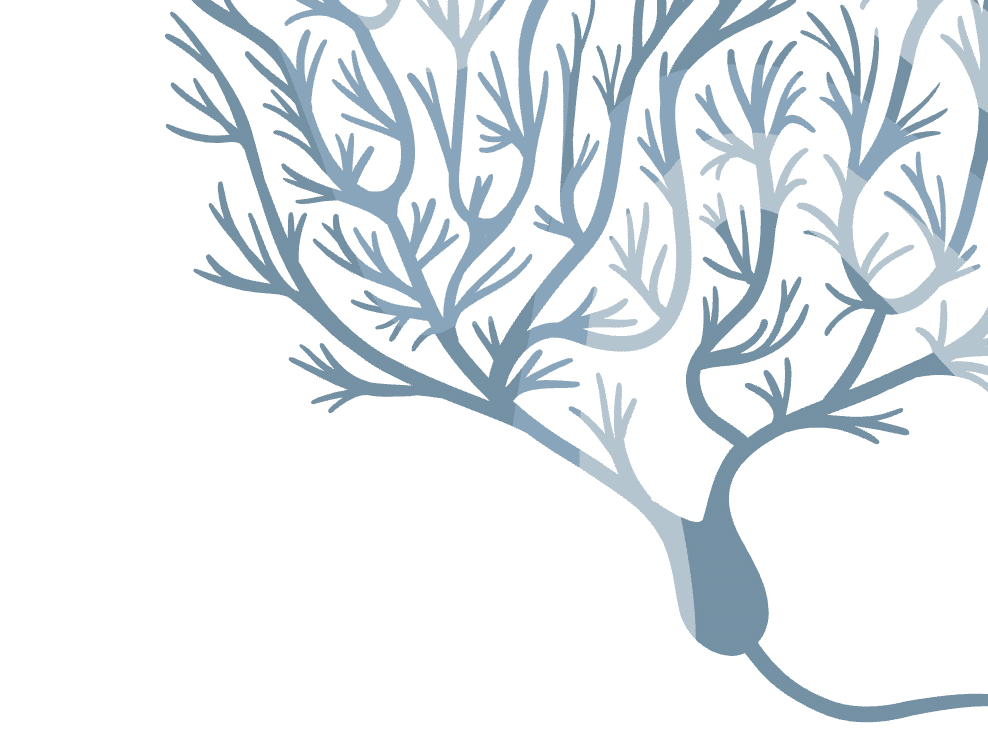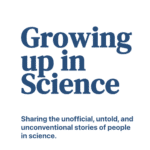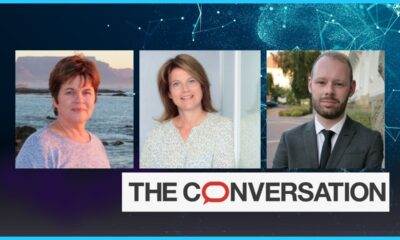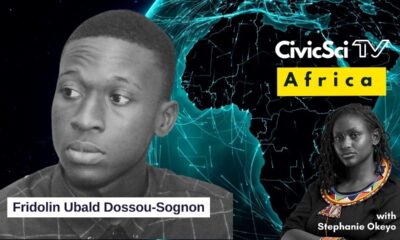Stories in Science Special Series
Marisa Carrasco: Official and Unofficial Stories
Dr. Carrasco is a Professor of Psychology and Neural Science at NYU. She grew up in Mexico City and earned her Licentiate in psychology, specializing in experimental psychology, from the National Autonomous University of Mexico (UNAM). She writes: “Juggling research, teaching, and academic service with family life, motherhood, and in recent years, aging parents, has been a difficult but fulfilling balancing act.”

Official Story
Dr. Carrasco investigates visual perception and attention, using human psychophysics, neuroimaging, and computational modeling in order to study the relation between the psychological and neural mechanisms involved in these processes. She grew up in Mexico City and earned her Licentiate in Psychology, specializing in experimental psychology, from the National Autonomous University of Mexico (UNAM), where she graduated summa cum laude. She then obtained her MS and a PhD in psychology, specializing in cognition and perception, from Princeton University, where she received the highest scholarly excellence award, the Jacobus Honorific Fellowship. She became an Assistant Professor of Psychology at Wesleyan University, where she was the recipient of an NSF Young Investigator Award and an American Association of University Women Fellowship. She joined NYU (1995) as an Associate Professor and became a Professor of Psychology and Neural Science (2002). From 2001-2007 she served as chair of Psychology. At NYU, she has received a Guggenheim Fellowship and a Cattell Fellowship, and NIH and NSF have continuously supported her research. She has been a senior editor of two scientific journals, Journal of Vision and Vision Research, a fellow of the American Psychological Society, and has been president of both the Vision Sciences Society and the Association for the Scientific Study of Consciousness. A dedicated teacher and mentor of undergrads, grads and postdocs, she received the NYU award for excellence in postdoc mentoring in 2018; She has been Collegiate Professor since 2007, and has been recently named Silver Professor of Psychology and Neural Science in 2019. The story below is co-published with Growing up in Science. Learn more about Dr. Carrasco’s lab HERE.
Unofficial Story
It all seems so neat and pre-ordained when you line up the stepping-stones that lead inexorably to the present. But of course, that apparently smooth narrative toward “who we are now” does not capture how we actually live our lives, or how we experience our careers. Because in some places, there were no visible stepping stones ahead at all, just mud; in other places the stepping stones were so small that a tiptoe balancing act was required; and at almost every step, there were forking paths in front of me, difficult decisions, influenced by will, but also by many aleatory factors like love, laws and just plain luck.

In relative terms, my journey has been comfortable. I grew up in Mexico City in a very supportive home with college-educated parents, in which academics are highly valued. My parents provided everything so my siblings and I could concentrate on our studies and activities we liked (like tennis, music and dance). They instilled in us, with example and words, the ideas of giving our best to whatever we do and of having a strong work ethic. And they unselfishly supported us to pursue our dreams, even when they might take us far from home (studying abroad is not that common in Mexico, and two of my siblings are also faculty members in the US). Ironically, I didn’t experience or foresee many of the limitations that in the US are often automatically attributed to me. Throughout my career, I have often been asked if I am in the Spanish Department, and more recently, if I work on immigration studies. (What else could a Mexican professor possibly do?). Sometimes I reply snarkily and laugh, but often I fail to take the opportunity to ‘educate’ people. I can’t help but wonder if these questions are due to my being Mexican, a woman or both.
I could have become a medical doctor or a physicist (two possibilities I entertained through high school, but I decided to pursue psychology. My father, a chemical engineer, was happy I’d specialize in experimental psychology. (As a girl I loved going to his lab on pulp-and-paper and looking through the microscope). I was fortunate to go to the National Autonomous University of Mexico (UNAM, the oldest and largest university on this continent). I had the opportunity to take great classes and seminars and to conduct research. But more importantly, the UNAM opened my eyes to diverse and complex social and political issues in Mexico. I fell in love with research and with visual perception and I wrote a thesis on why simple bars mask letters more than gratings. I decided to apply to graduate school.
Juggling research, teaching, and academic service with family life, motherhood, and in recent years, aging parents, has been a difficult but fulfilling balancing act.
I could have gone to a different graduate school. After being accepted by several public universities I learned that as a foreigner I was not eligible for financial aid. As luck would have it, the Mexican agency that gave fellowships to study abroad, due to yet another economic crisis, cancelled their program that year. Luckily, several private universities also accepted me and I chose Princeton (yes, in part because of its proximity to NYC). For my doctoral dissertation I investigated various aspects of spatial vision, temporal vision, and their interaction. I was very fortunate to have a fabulous mentor and friend, Ron Kinchla. Until his passing, we stayed in touch and discussed science, family, politics and life. The last summer of graduate school I attended the first summer institute in cognitive neuroscience held at Harvard, a transformative experience.
After grad school, for technical, legal reasons, most postdoctoral positions were not feasible for me (Columbia and Penn fell through because I was not a green-card holder) and I had to get a job. Fortunately, both Jim (my partner at the time, husband now, whom I met in the dining hall of Princeton’s Graduate College) and I got several offers and decided to join Yale and Wesleyan, respectively; the only combination enabling us to live together. (A distinguished Princeton professor scolded me for not accepting the offers of research universities). We had our first son in CT, a course teaching relief for me, but no maternity or paternity leave. Six years later, NYU’s Dept. of Spanish and Portuguese recruited Jim and they asked Psychology to consider hiring me. Wesleyan offered Jim a faculty position in an attempt to retain me. We preferred to be in a research university and in NY. Our second son was born weeks after arriving to NYU, and again teaching relief for me, but no maternity or paternity leave. Fast-forward many years, after the passing of one of my dearest friends, we welcomed her son into our family. More unexpected joys and challenges would follow with our three sons.
Since arriving at NYU, I have been very fortunate to have supportive colleagues in Psychology and the Center for Neural Science, as well as great graduate students and postdocs, many of them are not only friends but have become family. But the path forward has not always been clear or unobstructed. All along the way I had to convince many colleagues at NYU that attention could be and should be rigorously investigated (many of whom ended up being collaborators; touché!). And through the years, submitting and resubmitting many grants to secure federal funding, it has been difficult being in what we call “the grant cave” but even more difficult coming out of it, to realize that I’ve fallen behind in many things in the lab and at home.
Juggling research, teaching, and academic service with family life, motherhood, and in recent years, aging parents, has been a difficult but fulfilling balancing act. Constant love and support from Jim and our sons are what have made possible the equilibrium; providing not just more stepping stones, but broad and solid continent-sized rocks on which to forge this path –and not a different one– to this particular present, and beyond.

-
 Audio Studio1 month ago
Audio Studio1 month ago“Reading it opened up a whole new world.” Kim Steele on building her company ‘Documentaries Don’t Work’
-
Civic Science Observer1 week ago
‘Science policy’ Google searches spiked in 2025. What does that mean?
-
Civic Science Observer1 month ago
Our developing civic science photojournalism experiment: Photos from 2025
-
Civic Science Observer1 month ago
Together again: Day 1 of the 2025 ASTC conference in black and white
Contact
Menu
Designed with WordPress
























